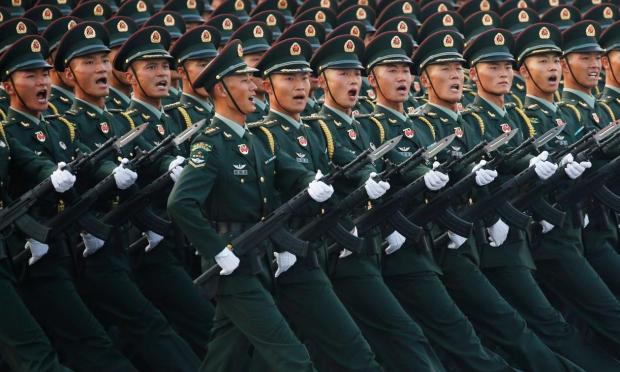Concerned over the rapid decline in new births, China has announced that couples now can have up to three children in a major policy shift. In 2016, the restriction on the 40-year-old one-child policy was lifted and parents were allowed to have two children. Yet, the number of newborns in China dropped by 15 percent in 2020.
This has led Beijing government to bring three-children policy since the declining birth rate may have serious implications on social and economic prospects of the country in near future. But, more importantly, it is going to hit its armed forces, which is certainly not good news when China has been engaged in border conflicts with most of its neighbour and has been odds with the US, France, Australia over who controls Asia Pacific regions. All
this needs Beijing to ensure youth population remains stable. Thus, it has removed the cap on childbirths. However, the latest announcement is less likely to have impact as the restrictions on child birth have a little to do with falling fertility rate in the world’s most populous country.
The major reason for the new announcement set to generate traction is high cost of living and long working hours. Many Chinese couples prefer private hospitals for child births due to the unavailability of beds in public hospitals, which however cost them over CNY 100,000 (USD 15,000). It is much more than what is charged in the US—USD 5,000.
In China, private hospitals with better facilities charge between CNY 150,000- 300,000. Similarly, housing and education cost too are very high in China. With rising competition and to maintain high social status, parents in China strive to provide quality education at private schools, hire private tutor and sign their children for extracurricular activities such as sports or music classes. However, they simply cannot afford similar facilities for more than one child
Average family living in Shanghai spends about CNY 840,000 on a child from birth to junior high school, according to a report by Shanghai Academy of Social Sciences report. On other hand, a low-income family
with annual income of CNY 50,000 end up spending over 70 percent of their earnings on their child. Also, Chinese women are not comfortable having more children since this affects their career prospects. In China, pregnant women face discrimination from their employers, which also lead to demotion in jobs after returning from
maternity leave.
Expressing doubts over efficacy of the new policy, Hao Zhou, a senior economist at Commerzbank, said “If relaxing the birth policy was effective, the current two-child policy should have proven to be effective too.” Zhou asserted that young people in China do not want three kids. “The fundamental issue is living costs are too high and life pressures are too huge," he said. Zhou’s assertion is corroborated by the birth statistic issued by Chinese government. China’s rate of population growth has been on a decline even after the two children were allowed in 2016. About 12 million babies were born in 2020, which registered decline of 18 percent year-on-year.
Chinese couples being unenthusiastic about having more than one kid is going to create problems for China’s economy, society, and military. China’s population grew at its slowest in the last decade in its independent history, forcing Beijing government to address the issue of fast ageing, which can weaken the country’s ability to power its economy. In China, senior citizen aged 65 and above constituted 8.87 percent of the total population in 2010, which now has increased to 13.5
percent.
The economic growth is based on higher productivity per worker. However, declining birth rate and increasing ageing rate are unlikely to increase productivity, which will translate into low economic growth for China in near future. And China is manufacturing hub. “A large and young labour force is the main engine of economic growth.
That’s what China is starting to lose,” said Yi Fuxian, a scientist at the University of Wisconsin. On the military front, China will be hurt significantly if Beijing government fails to bring its population out of one-child mindset. At present, about 70 percent of personnel in People’s Liberation Army (PLA) are from one-child families while the figure is 80 percent for combat troops.
Traditionally, sending the only son to war has been a taboo in China. Facing a critical problem of lack of human resource, the PLA has even started recruiting high-school graduates who are not
qualified enough to be admitted to university.
Even if the new announcement of relaxation in birth control works, the PLA will have to wait at least 20 years until second child is a young adult. “That means we can’t go to war without serious concerns,” Ni Lexiong, a Shanghai- based military expert.

Κόσμος
Ενημερώθηκε στις:
China stares at potential damages to economy and military as three children policy

Ακολουθήστε το Πενταπόσταγμα στο Google news













